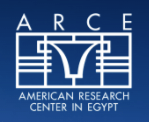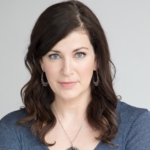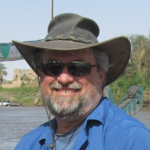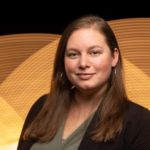Hidden Labor and Precarity in the Roman World
A Panel to Be Held at the SCS Meeting in January 2025
Organized by Lorenza Bennardo, University of Toronto and Rebecca Moorman, Boston University
The realities of labor are often hidden in the ancient Roman world. Writers conspicuously exalt the virtues of hardworking Republican farmers (Livy 3.26), the productivity of an idealized pastoral landscape (Verg. Ecl. 4; Longus 1.2-11), and the labor of philosophical inquiry (Lucr. DRN 2.730). In contrast, recognizing antiquity’s unseen labor often requires radically new perspectives, such as that of the human-turned-donkey protagonist of Apuleius’ Metamorphoses, Lucius, who recounts the horrific state of human and animal slaves at a mill (9.11-13). Emaciated humans display vivid welts while animal hooves are painfully widened from constant circuits around the mill. The material evidence of forced human and animal labor is newly perceptible to the lector scrupulosus from Lucius’ “humanimal state” (Chesi and Spiegel 2019 with Haraway 2016), a posthuman perspective that decenters anthropocentric experience to reveal a spectrum of involuntary interspecies production.
Extending discussions into ancient Rome’s “weaker voices” (Matzner and Harrison 2019), this panel seeks new approaches for decentering dominant perspectives (human, male, elite) to reveal the hidden labor of marginalized groups such as slaves, women, children, foreigners, and animals. We welcome papers exploring any aspect of Roman antiquity’s unseen labor (physical, emotional, intellectual, social, poetic, etc.), especially in ways that cut across traditional boundaries of both the classical Roman world and modern disciplines to consider, e.g., Greek, Egyptian, and other Roman-era literatures and cultures from literary, historical, and material perspectives. Papers might address one of the following questions:
- How does the revelation of hidden labor break down distinctions between boundaries of the self (human/animal, free/unfree, gendered, geographic, racial or ethnic, etc.)?
- What are the ancient terminologies for labor (labor, ἔργον, bꜣk)? What are the varying linguistic and cultural expressions of hidden labor in, e.g., Roman Egypt, Greece, Italy, Carthage, and/or Asia Minor?
- How does social status affect perceptions of artistic labor, e.g. in the slave theater of Roman comedy (Richlin 2017)? Is poetic labor something to show off or hide? What are the lost labors of poetic production?
- How do elite representations of poetic labor as otium obscure the economies of poetic production?
- Where does the aestheticization of labor enhance or obscure ugly, shameful, or otherwise stigmatized production, e.g., slave and child labor (Laes 2011), sex work (Glazebrook 2015), patron-client relationships, reproductive labor (Geue 2021), or industries of death and dying (Richlin 2014; Bond 2020)?
- What are the advantages or limitations of Marxist readings, e.g. the simultaneous over- and underworking of the gimmick (Ngai 2020), in revealing antiquity’s hidden labor (Geue 2018; cf. Bernard 2020)?
Please submit abstracts (500 word maximum, excluding bibliography) by February 15, 2024 to info@classicalstudies.org with the panel title in the subject line; do not include your name in the abstract itself. Abstracts will be judged anonymously.
Questions can be directed either to Rebecca Moorman (moorman@bu.edu) or Lorenza Bennardo (lorenza.bennardo@utoronto.ca).
The 2025 Annual Meeting of the Society for Classical Studies will be held January 2, 2025 – January 5, 2025 at the Philadelphia Marriott Downtown (1200 Filbert Street, Philadelphia, PA 19107, United States)
Literature cited
Bernard, Seth. 2020. “The Economy of Work.” In A Cultural History of Work in Antiquity, ed. E. Lytle, 19-32. London.
Bond, Sarah E. 2016. Trade and Taboo: Disreputable Professions in the Roman Mediterranean. Ann Arbor.
Chesi, Guilia Maria and Francesca Spiegel, eds. 2019. Classical Literature and Posthumanism. London.
Geue, Tom. 2021. “Power of Deduction, Labor of Reproduction: Vergil’s Sixth Eclogue and the Exploitation of Women.” Vergilius 67: 25-45.
——–. 2018. “Soft Hands, Hard Power: Sponging Off the Empire of Leisure (Virgil, Georgics 4).” JRS 108: 115-140.
Glazebrook, Allison, ed. 2015. Beyond Courtesans and Whores: Sex and Labor in the Greco-Roman World. Helios special issue 42.1.
Haraway, Donna J. 2016. Staying with the Trouble: Making Kin in the Chthulucene. Durham, NC.
Laes, Christian. 2011. Children in the Roman Empire: Outsiders Within. Cambridge.
Matzner, Sebastian and Stephen Harrison. 2019. Complex Inferiorities: The Poetics of the Weaker Voice in Latin Literature. Oxford.
Ngai, Sianne. 2020. Theory of the Gimmick: Aesthetic Judgment and Capitalist Form. Cambridge, MA.
Richlin, Amy. 2014. “Emotional Work: Lamenting the Roman Dead.” In Arguments from Silence: Writing the History of Roman Women, 267-288. Ann Arbor.
——–. 2017. Slave Theater in the Roman Republic: Plautus and Popular Comedy. Cambridge.







 Dr. Mariam F. Ayad is an associate professor of Egyptology at the American University in Cairo. In 2020–21, she was a visiting associate professor of women’s studies and Near Eastern religions and a research associate of the Women’s Studies in Religion Program at Harvard Divinity School. Ayad studied Egyptology at AUC (BA), the University of Toronto (MA), and Brown University (PhD) and was a tenured associate professor of art history and Egyptology at the University of Memphis, Tennessee, before returning to Egypt in 2011. She is the author of God’s Wife, God’s Servant: The God’s Wife of Amun (c. 740–525 bc) (Routledge, 2009) and the editor of Women in Ancient Egypt: Revisiting Power, Agency, and Autonomy (AUC Press, 2022), and three volumes on Coptic culture, including most recently Coptic Culture and Community: Daily Lives, Changing Times (AUC Press 2024, available at:
Dr. Mariam F. Ayad is an associate professor of Egyptology at the American University in Cairo. In 2020–21, she was a visiting associate professor of women’s studies and Near Eastern religions and a research associate of the Women’s Studies in Religion Program at Harvard Divinity School. Ayad studied Egyptology at AUC (BA), the University of Toronto (MA), and Brown University (PhD) and was a tenured associate professor of art history and Egyptology at the University of Memphis, Tennessee, before returning to Egypt in 2011. She is the author of God’s Wife, God’s Servant: The God’s Wife of Amun (c. 740–525 bc) (Routledge, 2009) and the editor of Women in Ancient Egypt: Revisiting Power, Agency, and Autonomy (AUC Press, 2022), and three volumes on Coptic culture, including most recently Coptic Culture and Community: Daily Lives, Changing Times (AUC Press 2024, available at:  Dr. Kara Cooney is a professor of Egyptology at UCLA and Chair of the Department of Near Eastern Languages and Cultures. Specializing in social history, gender studies, and economies in the ancient world, she received her Ph.D. in Egyptology from Johns Hopkins University. Her popular books include The Woman Who Would Be King: Hatshepsut’s Rise to Power in Ancient Egypt, When Women Ruled the World: Six Queens of Egypt, and The Good Kings: Absolute Power in Ancient Egypt and the Modern World. Her latest books include Ancient Egyptian Society: Challenging Assumptions, Exploring Approaches (Routledge, 2023) and Recycling for Death: Coffin Reuse in Ancient Egypt and the Theban Royal Caches (The American University in Cairo Press, forthcoming 2024).
Dr. Kara Cooney is a professor of Egyptology at UCLA and Chair of the Department of Near Eastern Languages and Cultures. Specializing in social history, gender studies, and economies in the ancient world, she received her Ph.D. in Egyptology from Johns Hopkins University. Her popular books include The Woman Who Would Be King: Hatshepsut’s Rise to Power in Ancient Egypt, When Women Ruled the World: Six Queens of Egypt, and The Good Kings: Absolute Power in Ancient Egypt and the Modern World. Her latest books include Ancient Egyptian Society: Challenging Assumptions, Exploring Approaches (Routledge, 2023) and Recycling for Death: Coffin Reuse in Ancient Egypt and the Theban Royal Caches (The American University in Cairo Press, forthcoming 2024). Dr. Stuart Tyson Smith is Professor of Anthropology at the University of California, Santa Barbara, and holds a Ph.D. in Archaeology from the University of California, Los Angeles. He has published on the dynamics of Egyptian imperialism and royal ideology, the use of sealings in administration, the origins of the Napatan state, death and burial and the ethnic, social, and economic dynamics of interaction between ancient Egypt and Nubia. He is also an active field archaeologist, having participated in and led archeological expeditions to Egypt and since 1997 to Sudanese Nubia, where he currently co-directs projects focusing on the New Kingdom and Napatan Period cemetery and fortress settlement of Tombos and a nearby Kerma cemetery. Recently, he edited Origins and Afterlives of Kush, a special issue of the Journal of Ancient Egyptian Interconnections (2022).
Dr. Stuart Tyson Smith is Professor of Anthropology at the University of California, Santa Barbara, and holds a Ph.D. in Archaeology from the University of California, Los Angeles. He has published on the dynamics of Egyptian imperialism and royal ideology, the use of sealings in administration, the origins of the Napatan state, death and burial and the ethnic, social, and economic dynamics of interaction between ancient Egypt and Nubia. He is also an active field archaeologist, having participated in and led archeological expeditions to Egypt and since 1997 to Sudanese Nubia, where he currently co-directs projects focusing on the New Kingdom and Napatan Period cemetery and fortress settlement of Tombos and a nearby Kerma cemetery. Recently, he edited Origins and Afterlives of Kush, a special issue of the Journal of Ancient Egyptian Interconnections (2022).









